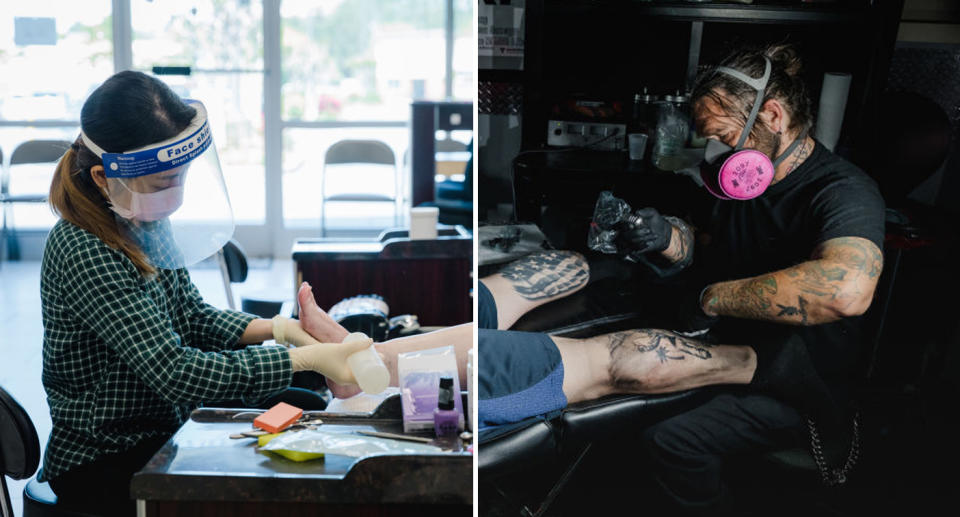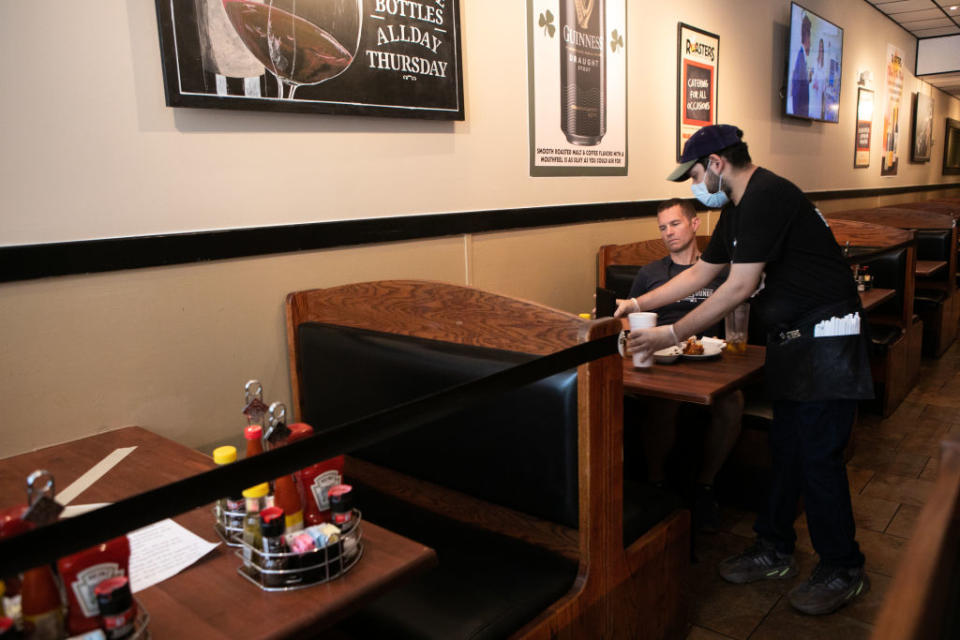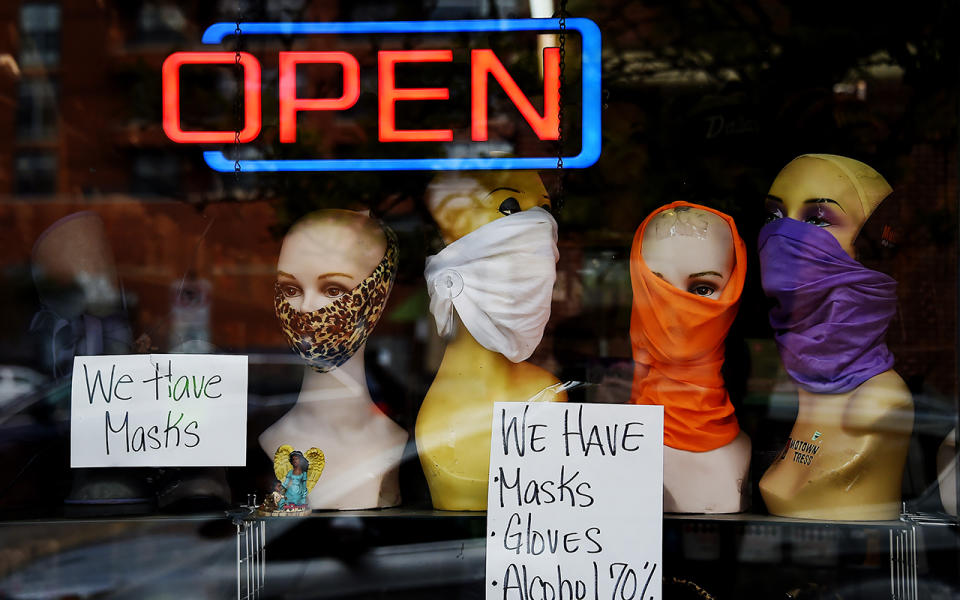'Risky approach': Why some US states are pushing to reopen 'too soon'
It may be one of the worst-hit countries in the world but the United States is increasingly keen to put the coronavirus in the rear view mirror and take steps to reignite economic activity.
As the country surpassed one million confirmed cases of COVID-19 earlier this week – and more deaths than it suffered in the Vietnam War – a number of states began to reopen amid intense debate around the country.
Last week, Georgia’s Republican governor Brian Kemp announced plans to allow gyms, tattoo parlours, hair and nail salons, massage therapists to reopen from Monday.
Restrictions have also been relaxed on restaurants and movie theatres with many mask-wearing workers returning to shops and hospitality venues.


The move by Georgia shocked many, even US president Donald Trump who is an ally of the governor and said he thought the state’s rollback is “just too soon”.
The announcement was made when less than one per cent of Georgia’s population had been tested. And among those being tested, 19 per cent were returning a positive reading for COVID-19.
Other string of other states including Oklahoma, which was among a handful of states not to issue formal stay-at-home order, South Carolina, Tennessee, Mississippi and Montana have also begun easing restrictions with a number of other states to follow in the coming days.

The relaxing of restrictions comes after protesters hit the streets around the US – some armed with assault weapons – to protest lockdown measures.
A backlash against stay-at-home orders, egged on by conservative media pundits on Fox News and even US president Donald Trump, led to extraordinary scenes on the streets of America including a defiant healthcare worker who blocked a line of protesters in their cars.
Disease expert says US is ‘playing Russian roulette’
“I think they’re playing Russian roulette,’’ said Dr John Swartzberg, clinical professor emeritus at the University of California-Berkeley and infectious diseases expert.
“They’re hoping obviously that reopening the states is not going to lead to increased cases. They have no way of monitoring the answer to that question until it explodes,” he told USA Today on Wednesday.
“If they reopen the state without adequate testing and without adequate contact tracing, there will be more cases, and they won’t recognise those cases until they start appearing in the emergency room and then in the ICU.’’
Other health experts were also quick to express concern including Dr Dena Grayson a physician who unsuccessfully ran for the House of Representatives in Florida.
“US states pushing to reopen should look at Germany, where an early attempt to ease its lockdown has led to an increase in COVID19 cases,” she tweeted.
As debate raged in different states, opposing hashtags in the debate to reopen California began trending on Twitter on Wednesday – some authentic while others the likely handiwork of Twitter bots.

Economic worries push states to ‘risky approach’
Professor Don DeBats is the head of American Studies at Flinders University where he specialises in contemporary and past US politics. He says there’s not much anyone can do if state governments in the US decide to let businesses open up amid the pandemic.
“But it’s a risky approach,” he told Yahoo News Australia.
“American states are a lot more economically and politically independent than Australian states,” he explained.

“They really are responsible for their own economic wellbeing ... while the federal government can run a deficit because it makes the money, states can’t so they’re under a fair bit of pressure.”
Despite Trump’s bluster at times (with the presidential election looming in November), the US president doesn’t have much power over how governor’s respond to the pandemic.
“Despite his concerns ... he can be the bully pulpit: you can’t command very much but you can speak loudly,” Prof DeBats said.
'Sacrificial lambs': City's surprisingly deadly job during pandemic
Trump says he will suspend all immigration to the US amid coronavirus crisis
'Worst response on Earth': What's behind Trump's WHO funding cut?
'A whole city underground': Video shows New York's heartbreaking virus problem
Prof DeBats also conceded the strong strain of libertarian politics in the US, which prioritises freedom and a lack of government intervention above all else, has played a part in some states pushing to reopen earlier.
“This has gone on for a long time and people are getting stir crazy and I think the economic worries are really high,” he told Yahoo News Australia.

Nonetheless there are risks as the lockdown restrictions are eased across what is one of the worst-hit countries in the world on a per capita basis.
A Harvard University study recently found that the US would need to conduct between 500,000 and 700,000 coronavirus tests a day in order to safely open up.
However, according to the COVID Tracking Project, the country averaged 210,000 daily tests last week.
“I think a lot of people are really scared, particularly around the hotspots,” Prof DeBats said.
“But it’s a diverse place ... and these governors, they’re willing to take that chance.”
Do you have a story tip? Email: newsroomau@yahoonews.com.
You can also follow us on Facebook, Instagram and Twitter and download the Yahoo News app from the App Store or Google Play.




